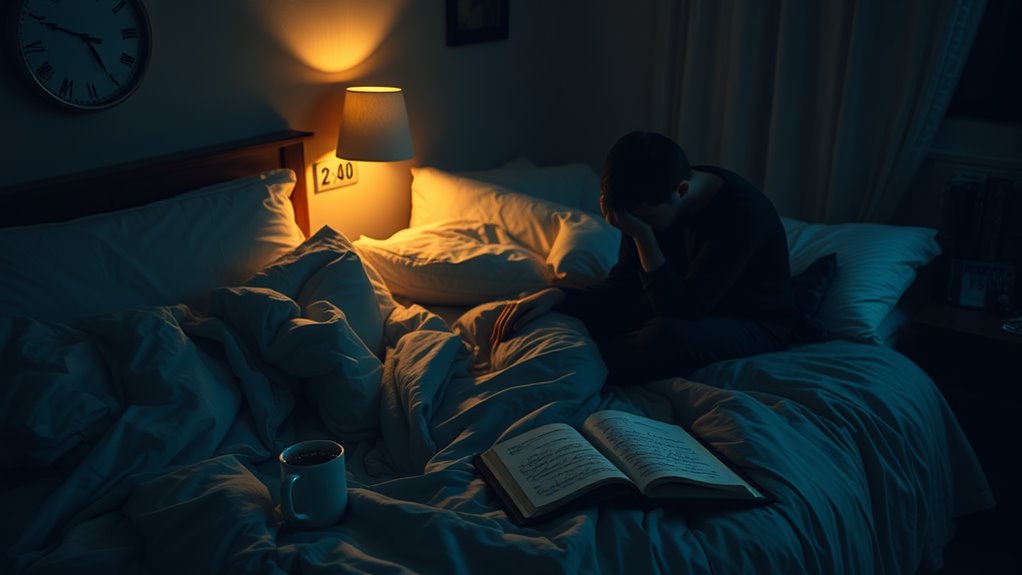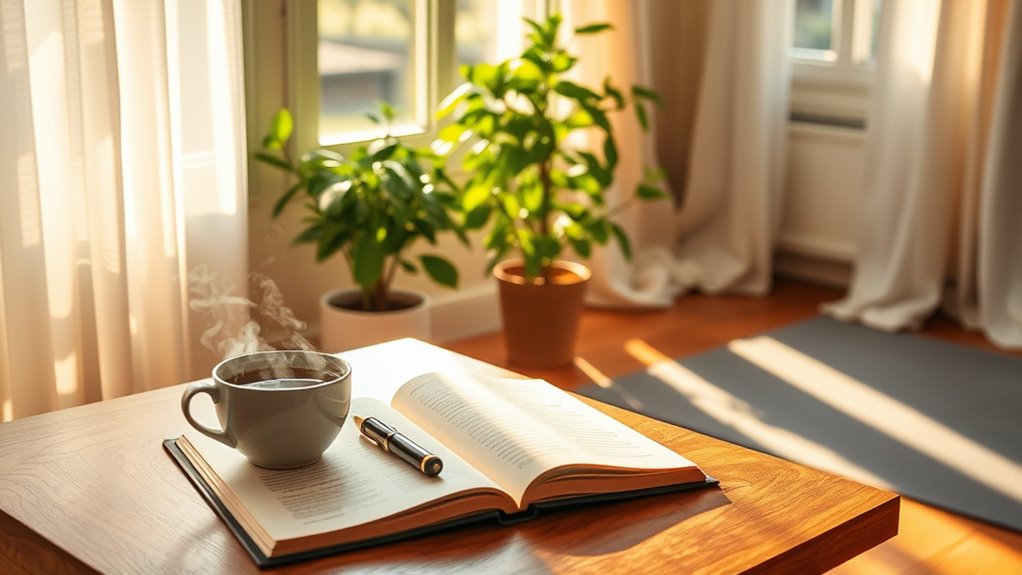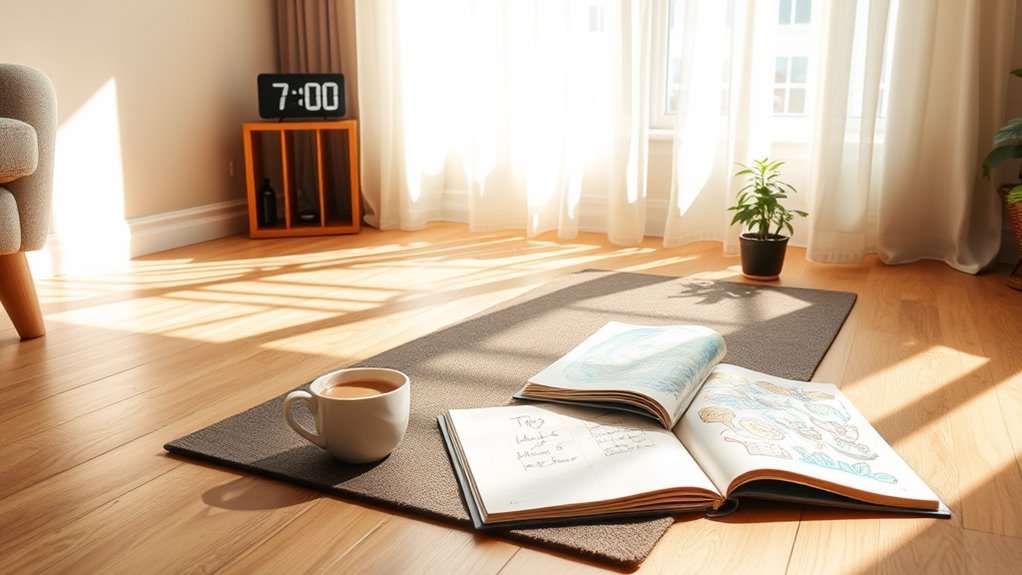Why You’re Not Sleeping Well (And How to Fix It in 3 Steps)
If you’re not sleeping well, it could be due to excess caffeine, an untidy bedroom, or an inconsistent bedtime routine. Start by identifying what disrupts your sleep, like screen time or stress. Next, create a tranquil sleep environment with comfortable bedding and a cool room temperature. Finally, establish a fixed sleep schedule to help regulate your body’s internal clock. Want more tips to improve your sleep quality? There’s plenty more you can do to enhance your rest.
Key Takeaways
- Evaluate your caffeine and alcohol consumption, particularly close to bedtime, as they disrupt sleep quality.
- Create a calming bedroom environment with comfortable bedding, optimal temperature, and minimal light or noise disturbances.
- Establish a consistent sleep routine by adhering to a fixed sleep schedule and incorporating wind-down activities before bed.
- Limit screen time in the evening to reduce blue light exposure, promoting healthier melatonin production for better sleep.
- Address stress and anxiety through relaxation techniques, as racing thoughts can significantly impair your ability to fall asleep.
Identifying Common Sleep Disruptors
If you’ve ever tossed and turned at night, you know how frustrating it can be to figure out what’s causing your sleep troubles. Identifying common sleep disruptors is essential for achieving better sleep.
Start by evaluating your daily habits, such as caffeine and alcohol intake. Both can greatly impair your sleep quality when consumed too close to bedtime.
Next, consider your electronic usage; screens emit blue light that can hinder melatonin production.
Finally, evaluate stress and anxiety levels, as racing thoughts can prevent relaxation. Incorporating actionable steps to address these issues can significantly enhance your sleep quality.
Creating a Sleep-Friendly Environment
To achieve a restful night, creating a sleep-friendly environment is essential.
Start by optimizing your bedroom for tranquility. Consider these elements:
-
Comfortable bedding: Invest in a quality mattress and pillows that support your preferred sleeping position.
-
Optimal temperature: Keep your room cool, ideally between 60-67°F (15-19°C) for ideal sleep.
-
Light control: Use blackout curtains to eliminate outside light, and consider a sleep mask if necessary.
-
Noise reduction: Minimize disturbances with thick curtains or white noise machines to drown out disruptive sounds.
Incorporating simple nighttime rituals can also significantly enhance your ability to fall asleep and stay asleep.
Establishing a Consistent Sleep Routine
Creating a soothing sleep environment sets the stage for better rest, but without a consistent sleep routine, you might still struggle to drift off.
To master your sleep, set a fixed bedtime and wake-up time, even on weekends. This helps regulate your body’s internal clock, making it easier to fall asleep and wake up refreshed.
Prioritize winding down with calming activities, like reading or meditating, at least 30 minutes before bed. Avoid screens, as the blue light can disrupt melatonin production. Incorporating a 10-minute nighttime routine can further enhance your ability to wind down and prepare for sleep.
Keep your routine ritualistic; consistency breeds familiarity, signaling your body that it’s time to sleep.
Frequently Asked Questions
How Do Medications Affect My Sleep Quality?
Medications can greatly impact your sleep quality, whether by causing drowsiness or disrupting your sleep cycles. It’s crucial to evaluate each medication’s side effects and consult your doctor for ideal management of your sleep health.
Can Diet Influence My Ability to Fall Asleep?
Absolutely, your diet can considerably influence your ability to fall asleep. Consuming heavy meals, caffeine, or sugar late in the day can disrupt your sleep cycle, while balanced, light snacks may promote better rest.
What Role Does Stress Play in Sleep Disruption?
Stress considerably disrupts your sleep by increasing cortisol levels, which keeps your body in a heightened state of alertness. When you’re stressed, you find it harder to relax, making falling asleep more challenging.
Are Napping Habits Affecting My Nighttime Sleep?
Yes, your napping habits can impact nighttime sleep. If you nap too long or too late in the day, it may reduce your nighttime sleep quality, leaving you feeling less rested and more fatigued when awake.
How Does Technology Impact My Sleep Patterns?
Technology disrupts your sleep patterns by emitting blue light that interferes with melatonin production. You might find it hard to fall asleep while using devices close to bedtime, creating an unhealthy cycle of restless nights.





